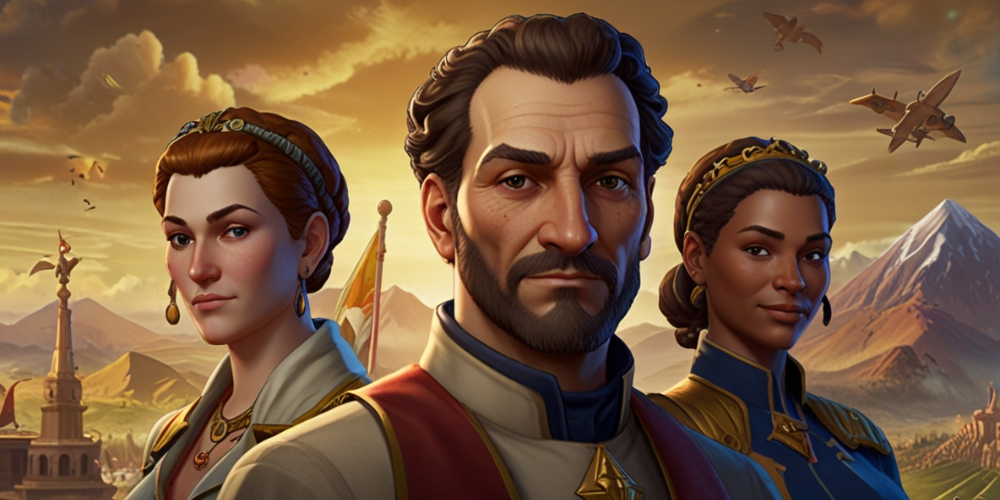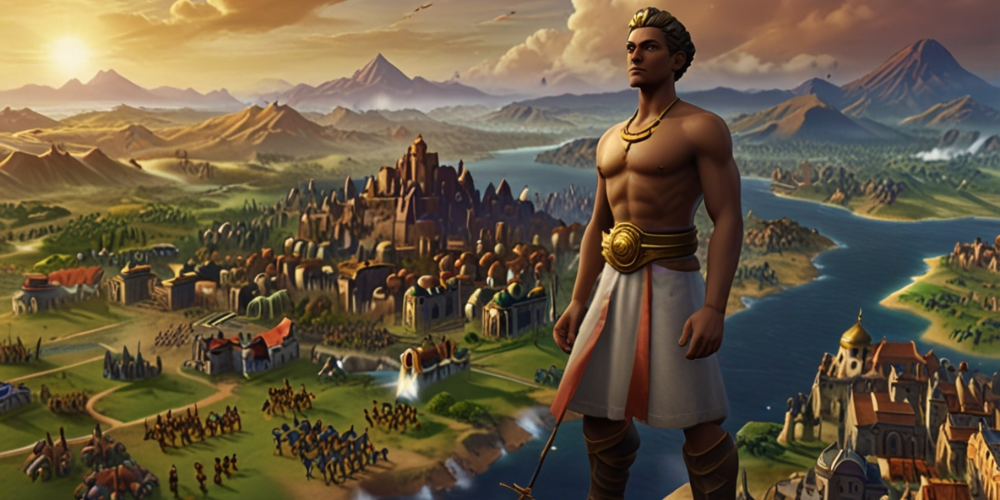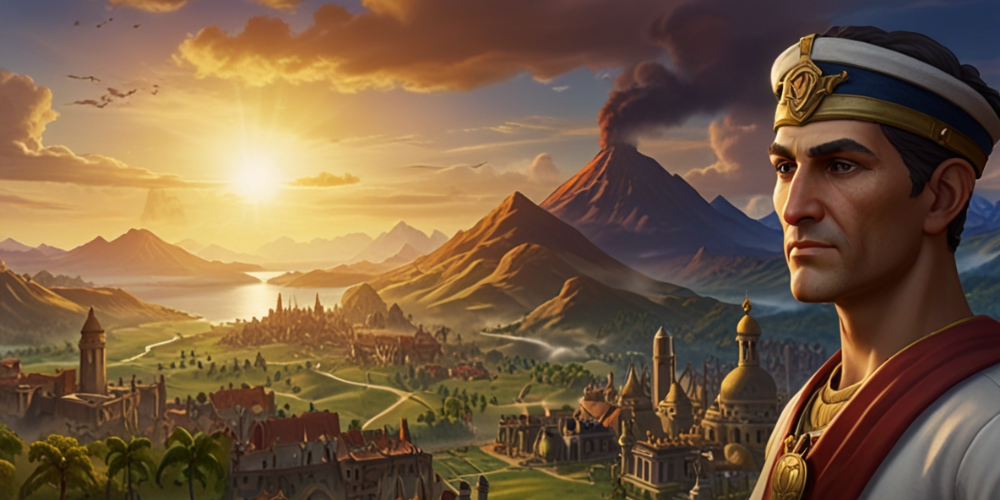Best Strategies for Civilization VI

As I dove into Civilization VI, I was immediately struck by the depth of its game mechanics. Each turn is an opportunity to implement my strategy, whether through diplomacy, warfare, or technological advancement. The importance of city placement became clear; I learned to prioritize locations near rivers and coastlines for better production and growth. It’s crucial to familiarize myself with the distinct abilities of my chosen civilization, as they shape my approach to each game. I came to realize that understanding the mechanics allows for a more fulfilling tactical execution.
Prioritizing Technology and Culture
If there’s one thing I learned, it’s the importance of balancing technology and culture. In my early games, I focused heavily on military technologies, but I quickly found that without cultural advancements, I struggled to stay competitive. I began prioritizing technologies that opened up new districts and wonders, ensuring my civilization had a strong foundation. Culture, on the other hand, unlocks policies that can significantly enhance my economy and military capabilities. Achieving a harmonious equilibrium between these elements has been essential for achieving success.
The Art of Diplomacy
Diplomacy in Civilization VI has nuances that I initially overlooked. As I interacted with other leaders, I learned to manage my relationships carefully. Forming alliances can provide crucial advantages, such as shared resources and military support. I paid close attention to the agendas of other leaders, adapting my strategies accordingly. When another civilization issued demands, I learned the importance of weighing their significance against my long-term goals. The subtleties of diplomacy transformed my approach, allowing me to navigate complex political landscapes successfully.

Strategizing City Development
City development became one of my favorite aspects of the game. I quickly realized that a well-planned city can be a game-changer. I focused on specializations, such as producing military units in one city while establishing cultural centers in another. Understanding adjacency bonuses was key. I capitalized on positioning districts next to suitable terrain to maximize their potential output. Every building, from granaries to industrial zones, plays a role in developing a strong, self-sufficient civilization. The more I learned about city development, the more effective my strategies became.
Resource Management
In my journeys through the game, resource management emerged as a critical component. I realized not all resources are created equal, and certain luxuries can sway a Civilization’s success or failure. I dedicated time to explore the surrounding terrain to acquire as many luxury and strategic resources as possible. Managing resource allocation wisely led to a prosperous civilization, enhancing happiness and productivity. By trading excess resources with other leaders, I bolstered my economy while keeping my civilization at an advantage. This careful balance of resource management elevated me to dominance.
Understanding Victory Conditions
From the start, recognizing various victory conditions set my gameplay apart. Whether aiming for a scientific victory, a cultural win, or overpowering my foes, the route I chose dictated my strategies. I began to tailor my approach based on the victory condition I pursued while remaining adaptable to changing circumstances. The benefits of early game planning came to light as I realized that commitment to a specific victory type often comes with the need for flexibility and timely adjustments. This strategic depth often keeps the gameplay feeling fresh and engaging.

Military Strategy and Defense
Engaging in military strategy has been one of the most thrilling elements of Civilization VI. As soon as I realized the significance of a well-rounded military, I began drafting units that complemented one another. Ranged units, cavalry, and siege weapons worked in tandem to create an effective offense. Additionally, I reinforced my cities with defensive structures and established a robust garrison. I soon learned the importance of scouting with explorers to get intel on enemy movements, allowing me to prepare strategically for conflict. Understanding and adjusting my military tactics according to the threats I face became an exhilarating aspect of the game.
Wonders and Their Strategic Value
Building wonders is akin to a powerful statement in Civilization VI. I began planning my cities with specific wonders in mind, understanding their unique advantages. My priority shifted as I learned that the right wonder could provide significant boosts in science, culture, or military abilities. However, competition for wonders can be fierce. I often found myself in a race against other civilizations, leading to unexpected shifts in gameplay. Securing a vital wonder often dictated my strategic direction for the entire game, making careful planning essential.
Exploration and Expansion
The thrill of exploring the unknown has always captivated me during gameplay. I prioritized sending scouts into distance to unravel the world around me. uncovering new resources, city-states, and potential threats. I recognized that timing becomes critical; as I discovered new lands, I strategically expanded my empire by founding new cities in fertile regions. Establishing a presence before rivals can significantly influence trade dynamics and resource acquisition. Embracing exploration led me to countless strategic advantages in securing victory.

Combat Tactics and Terrain
Through many encounters, I discovered that understanding terrain could elevate my combat tactics. Hills, forests, and rivers all impact battle outcomes. I learned to position my units based on elevation and cover, allowing me to achieve favorable engagements. Utilizing terrain advantages not only improved my combat effectiveness but also allowed me to mitigate threats when defending my cities. This tactical awareness lent itself to a more profound enjoyment of combat scenarios, forcing me to think creatively as battles unfolded.
Managing Districts and Housing
As I expanded my civilization, I realized the importance of managing districts and housing effectively. I began to understand a city’s housing capacity could dramatically impact growth and productivity. By establishing districts early and planning their placement with regard to resources, I orchestrated a diverse array of benefits across my empire. Balancing growth with player demands and amenities drove my strategies even further, making city management a crucial component of success.
Facing Crisis and Adapting
Despite careful planning, crisis situations inevitably arose in my games. Whether faced with unexpected wars, plagues, or natural disasters, I learned the importance of adaptability. Each setback became an opportunity for refining my approach as I adjusted my strategy to counter new threats. I realized that no single game plan could guarantee success. Instead, the ability to pivot and respond to the realities of the game proved to be one of my most valuable strengths.

Cultural Diplomacy and Foreign Relations
As I developed cultural strategies, I learned that cultural diplomacy could be a powerful tool in expanding my influence. Focusing on generating tourism not only improved my standing amongst other leaders but also attracted valuable trade partnerships. Encouraging great works and artist contributions further solidified my culture’s reputation. This aspect of gameplay added a layer of complexity, allowing me to engage with new mechanics while deepening relationships with other civilizations.
League and Civilization Abilities
Each civilization's unique abilities became evident to me as I played. I learned how to maximize these abilities by adopting playstyles that enhanced their strengths. For instance, if I played as Egypt, I focused on trade routes and district development to harness their powerful bonuses. Conversely, with civilizations like Russia, I prioritized exploration and settlement to utilize their unique advantages effectively. Developing a personal style while accommodating these distinct abilities provided countless strategies and gameplay variations.
Maintaining Economic Stability
Achieving a stable economy became a focal point of my strategies. Managing gold income efficiently allowed me to support my military and city-growth efforts without sacrificing essential resources. I explored new trade routes, made wise investments, and cultivated great merchants who enhanced my economic landscape. I invested time in understanding trade dynamics and the interplay between my resources and the demands of other civilizations. A bustling economy formed the backbone of my expansive empire, laying the groundwork for unparalleled success.







